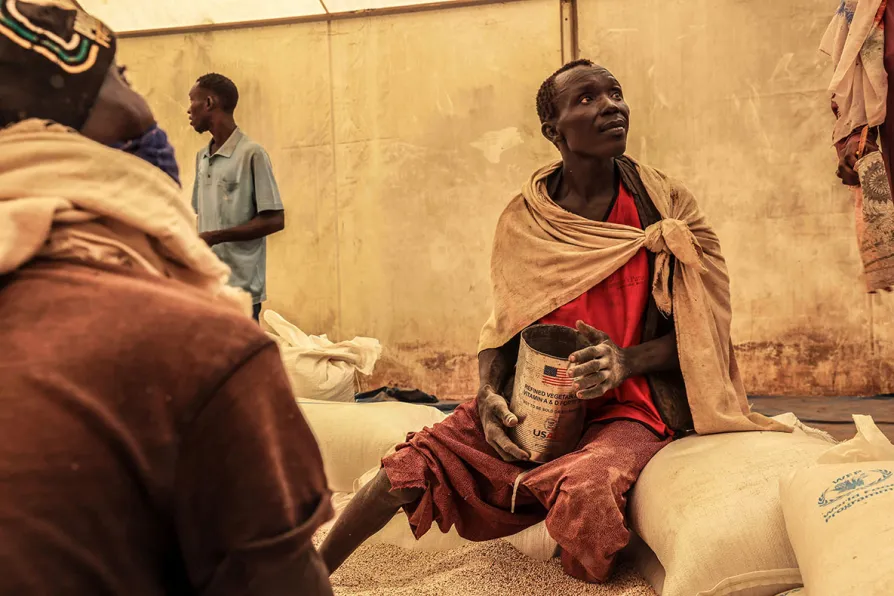
 A man scoops up portions of wheat to be allocated to each waiting family after distribution by the U.N. World Food Programme (WFP) in the Gendrassa Refugee Camp, Maban, South Sudan, August 20, 2025
A man scoops up portions of wheat to be allocated to each waiting family after distribution by the U.N. World Food Programme (WFP) in the Gendrassa Refugee Camp, Maban, South Sudan, August 20, 2025
SEVERE funding cuts from the United Nations’s top donors could see nearly 14 million people forced into emergency levels of hunger, the World Food Programme (WFP) warned today.
The WFP, traditionally the UN’s best funded agency, said in a new report that its funding this year “has never been more challenged” — largely due to slashed outlays from the US under the Trump administration and other leading Western donors.
It warned that 13.7 million of its food aid recipients could be forced into emergency levels of hunger as funding is cut.
The countries facing “major disruptions” are Afghanistan, Congo, Haiti, Somalia, South Sudan and Sudan, it said.
“We are watching the lifeline for millions of people disintegrate before our eyes,” executive director Cindy McCain said.
WFP said it expects to receive 40 per cent less funding this year, leading to a projected budget of $6.4 billion (£4.8bn) — after receiving some $10bn (£7.49bn) last year.
“This is not just a funding gap — it’s a reality gap between what we need to do and what we can afford to do,” Ms McCain said.
“We are at risk of losing decades of progress in the fight against hunger.”
The WFP said global hunger is already at record levels, with 319 million people facing acute food insecurity — including 44 million at emergency levels.
Famine stalks Gaza, mainly due to a deliberate Israeli blockade, and Sudan.
In Afghanistan, food assistance is reaching less than 10 per cent of people who are food insecure, meaning that they do not know where their next meal will come from, the agency said.
Many UN organisations, including the migration, health and refugee agencies, have announced sharp aid and staffing cuts this year because of reduced support from traditional big donors.
The humanitarian aid community has also been affected by sharp cuts.










